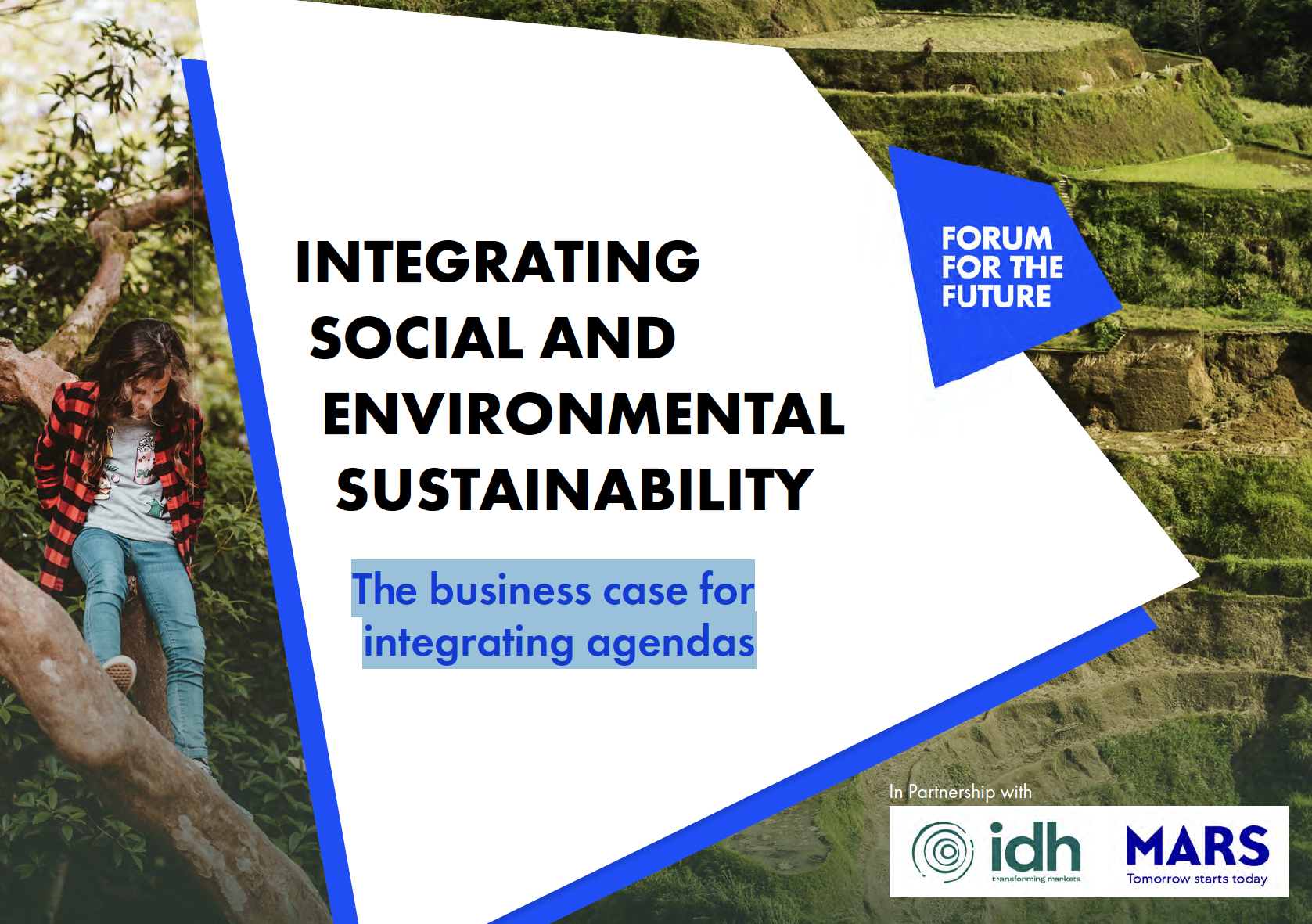Our planetary systems are in crisis. From climate change and biodiversity loss to poverty and inequality, transformative action is needed urgently on pervasive environmental and social issues. These are areas that are inherently connected – degrading ecosystems result in more extreme weather, which devastates livelihoods with a compounding effect on the most vulnerable communities. And yet, there is a tendency for corporations to simplify complex challenges by breaking them down into separate, smaller issues. While this might be easier for reporting, it is a limiting approach that fails to realize the full potential of corporate sustainability efforts.
For scalable, lasting change, we cannot continue to address environmental and social issues in isolation. We need greater integration. And we know it can be done, but there hasn’t been a roadmap to show how it might be possible.
This is why Mars and IDH partnered with Forum for the Future to commission this research that explores how companies can better integrate environmental and social agendas.
This study found that most companies are managing the social and environmental sustainability agendas in isolation. It also provides evidence to show that social action can unlock environmental impact and vice versa, further illustrating the value of an interconnected approach.
Most importantly, the report also presents six key recommendations to help organizations move from conventional, isolated strategies to an integrated (and more effective) method. These recommendations include:
- Unlock strategic synergies: Identify the synergies between business and sustainability strategies, embed sustainability goals and establish systems which demystify sustainability.
- Restructure to integrate: Utilize business structure as a provocation, at board level and by establishing connective internal roles.
- Leverage formal processes: Employ formal policies and incentive structures that ensure employees see social and environmental sustainability as integrated and fundamental to their role and what counts as success.
- Show visionary leadership: Leaders must accept a new role in a changing world – acting with courage and building skills to see the connections between business, society and environment.
- Create a collaboration culture: Unlock a culture of interconnectedness through a deeper understanding of company culture and creating the conditions for true collaboration.
- Leverage informal power: Critically reflect on the nature of decision making throughout the organization to challenge how priorities are siloed and how decisions around this are influenced.
Authors:
Charlie Thorneycroft, Neil Walker, Gemma Bridgman, Raphaël Lachiver and James Payne


